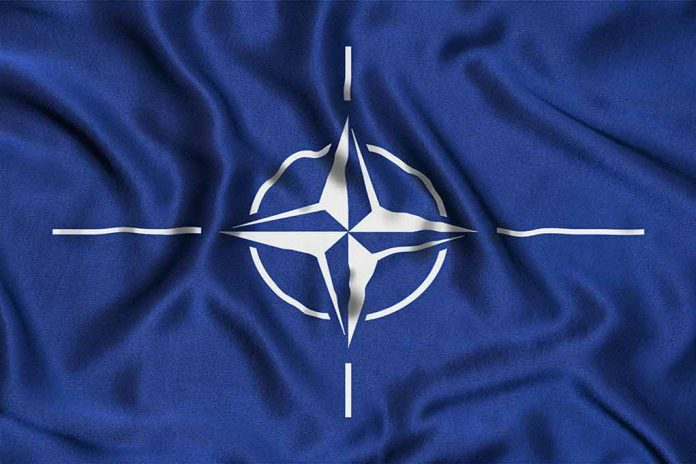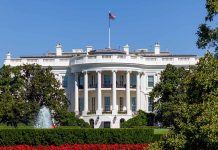
Former NATO chief Anders Fogh Rasmussen suggests Donald Trump’s unpredictability could be the key to unlocking peace in Ukraine, but concerns linger about the potential impact of a Trump presidency on U.S. support for the war-torn nation.
At a Glance
- Rasmussen believes Trump’s unpredictability and desire to be a “winner” could drive peace negotiations in Ukraine.
- Many Ukrainians fear a Trump presidency could lead to reduced U.S. support and pressure on NATO allies.
- Trump has claimed he could “end the war in 24 hours” but hasn’t provided details.
- The situation remains critical, with North Korean troops supporting Russia and Ukraine urging more international aid.
- Less than 5% of U.S. voters prioritize foreign policy, indicating limited focus on the Ukraine war in U.S. campaigns.
Rasmussen’s Optimistic View on Trump’s Potential Role
Former NATO chief Anders Fogh Rasmussen has put forward an intriguing perspective on Donald Trump’s potential role in the ongoing Ukraine conflict. Rasmussen suggests that Trump’s unpredictable nature, combined with his strong desire for recognition, could be leveraged to broker peace between Ukraine and Russia.
Rasmussen’s optimism stems from the belief that Trump’s ego could be a powerful tool in diplomatic negotiations. He stated, “We could use a combination of Trump’s unpredictability with his desire to be a winner and make that a strong formula for promoting a peace process in Ukraine.”
Ukrainian Concerns and Fears
Despite Rasmussen’s positive outlook, many Ukrainians express deep concern about the potential consequences of a Trump presidency. There are fears that Trump’s return to the White House could lead to reduced U.S. support for Ukraine and increased pressure on NATO allies, leaving Eastern Europe vulnerable to Russian aggression.
“I’m really scared,” said Denys, a Ukrainian journalist. “Trump’s unpredictable nature and populist rhetoric, including his claim of establishing ‘peace between Ukraine and Russia within 24 hours’, are seen as dangerously simplistic and unrealistic.”
Trump’s Stance on NATO and Ukraine
Trump’s past criticisms of NATO and his skepticism towards the alliance have added to the unease. He has repeatedly criticized NATO allies for not meeting defense spending targets, raising concerns about the future of the transatlantic alliance under a potential second Trump administration.
While Trump has claimed he could “end the war in 24 hours,” he has not provided details on his plan. This lack of clarity has led to speculation that his proposed peace plan might involve Ukraine ceding territory or abandoning NATO aspirations, aligning with past suggestions from his advisors.
The Geopolitical Backdrop
The situation in Ukraine remains critical, with North Korean troops reportedly supporting Russia and Ukrainian President Zelenskyy urging more international aid, especially from the U.S. This complex geopolitical backdrop adds urgency to the need for a resolution to the conflict.
Despite the concerns, some, like Tymofiy Mylovanov, believe that Trump’s impact might not be as negative as feared. Mylovanov stated, “Trump isn’t as bad for Ukraine as many believe.” The actual outcome, he suggests, may depend more on the situation on the ground than on U.S. presidential politics.
The Path Forward
The potential geopolitical impact of the election outcome looms large, particularly for the future of Ukraine and its ongoing conflict with Russia.
Rasmussen’s perspective offers a glimmer of hope, suggesting that Trump’s unique approach to diplomacy could potentially break the deadlock in Ukraine. However, the fears and concerns of many Ukrainians underscore the high stakes involved and the need for careful, nuanced diplomacy in addressing this complex international crisis.
Sources:
- Ukrainians fear Trump return could threaten their future
- Unpredictable Trump could unlock Ukraine peace deal, ex-NATO chief says















